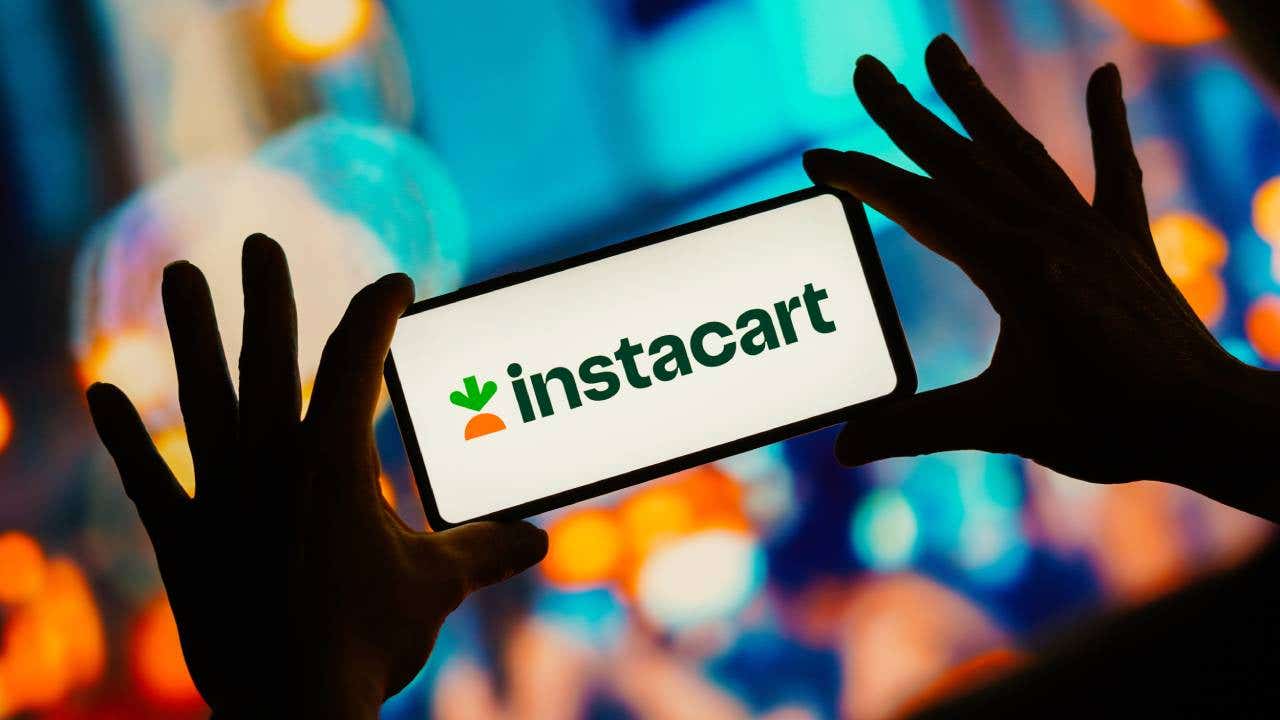7 hot IPOs for the rest of 2023

The Bankrate promise
At Bankrate we strive to help you make smarter financial decisions. While we adhere to strict , this post may contain references to products from our partners. Here's an explanation for .
It’s been a lackluster year for initial public offerings (IPOs), but the last few months of 2023 may see a notable uptick in the number of companies hitting the stock market. Several long-awaited IPOs are expected to debut soon. If they’re received warmly by investors, it may signal the start of a more robust IPO market, if interest rates, inflation and the economy can stay on track.
“This year is on pace to be the quietest pace for IPOs since 2009,” says Brianne Lynch, head of market insight at EquityZen, a marketplace for stock of private companies. Yet plenty of pent-up demand exists from institutional and retail investors, who’ve built capital while the IPO window sat closed. “The first IPOs to come out will be a good indicator for investor demand,” she says.
Here are some of the hottest IPOs on investors’ radar and what’s going on in the IPO market.
IPOs looking to emerge after hiatus
IPOs have been mostly on hold since the start of 2022, as rising interest rates, surging commodity prices and high inflation have all but shut the window for companies to conduct an IPO. Sure, some small companies such as mutual thrift banks have been able to tap the market, but funding has been mostly shut off for the high-profile firms that get investors’ pulse racing.
Not only have the number of deals dried up recently, but so has the total amount of funding. For example, the first half of 2023 saw just 52 IPOs, according to Renaissance Capital, compared to 39 in the year-ago period. Total deal funding was up slightly in absolute terms, from $4.2 billion to $8.9 billion. But those numbers pale in comparison to the raucous first half of 2021, when IPOs numbered 219, with a total volume of $79.9 billion.
“Through the first half of this year financial markets were as tight as they’ve been since the financial crisis,” says Daniel Milan, managing partner at Cornerstone Financial Services in Southfield, Michigan. “Capital markets have been tight. Period.”
Still, the situation is improving enough to fund a few IPOs, in particular as inflation settles down and investors increasingly think a recession is off the table in the near term. The Federal Reserve looks as if it’s close to ending its unprecedentedly fast increase of interest rates.
“With rates at or close to their peak, that’s starting to create a level of certainty for companies to enter the IPO market,” says Milan.
But even if the next few higher-profile IPOs are successful, private companies don’t have much time to get their offering in before year-end. So any true re-opening of the IPO market is likely to be pushed off until next year, and only if the sensitive IPO market remains robust, say pros.
“If these few IPOs are successful, it would encourage others to follow,” says Lynch, “but we probably won’t see a ton of activity until 2024.”
Investors should rest assured that plenty of private companies are in the offing and awaiting a more robust market. So-called unicorns – those with a private valuation of more than $1 billion – are numerous, says Lynch, with more than 1,200 on the sidelines now.
But even with an open IPO market, investors are being picky with which companies they’ll fund.
Investors are still selective on IPOs
This tight financial situation has created at least two dynamics in the IPO market. First, only the better companies will be able to hit the IPO funding window in the near future, in contrast to 2021, when even suspect and money-losing companies could raise capital. Second, companies are going public at valuations that are lower than their valuations in private funding rounds.
To that first point, the firms hitting the market are a better sort, with strong growth rates or in popular sectors such as artificial intelligence, fintech or enterprise software.
Companies going public now are profitable, because investors don’t have the appetite for money-losing firms in this environment, says Lynch. They’re also looking for companies still growing revenues at 30 percent or more annually.
The second dynamic is particularly pivotal. An ever-higher valuation signals a successful investment, making for happy investors and allowing venture capital and other private equity firms to tout their returns to future clients. With these private firms funding companies for a typical period of 8 to 12 years, it’s now time for some long-awaited IPOs to leave the nest, even if the market is somewhat tight and the valuation is not as high as the private firms really want.
“Many of the companies that go public will have to accept valuations that are below where they raised money in the private market,” says Lynch. “A 10, 15 or 20 percent discount is probably a win in this environment.”
But if these late-2023 IPOs come off successfully, it could lessen the taboo of going public at lower-than-private valuations and encourage more firms to do so, even if at a measured pace.
Investors should tread carefully with IPOs
Still, even if the IPO market does open up more, investors should approach it carefully. IPOs are notorious underperformers for the first part of their public life, since they tend to benefit insiders in the process at the expense of outside investors. (Here’s how to get in on IPOs.)
“The people who make money on IPOs, at least in the short term, are the bankers, the IPO shareholders and the select institutional investors who are able to get the pre-IPO shares,” says Milan.
Another dynamic is also at play: Growth-stage companies are staying private longer than ever before, allowing private investors to capture more of the upside than they did previously. That means there’s less upside for public investors, who are simply the exit strategy for insiders.
“Everyone sees the shiny new object, but it’s not to the benefit of the retail investor,” says Milan.
The better approach for most investors is to give the new IPO at least a few quarters to get adjusted and for some hype to wear off – and the stock price with it. In the meantime investors can analyze the new company more fully and make a more informed investment decision.
7 hot IPOs to watch for
1. Instacart (CART)
This year the long-rumored IPO of Instacart is finally happening, but unfortunately not at the valuation that investors might have otherwise expected. A March 2021 funding round valued the grocery app at $39 billion and included such top venture capitalists as Andreesen Horowitz. After cutting its valuation in May and October 2022, the company has settled on an IPO valuation of between $8.6 billion and $9.3 billion – a sharp fall from prior estimates. Those looking to get into the IPO may have an opportunity through SoFi Invest, which is acting as an underwriter for the deal and can offer it to members.
2. Arm Holdings (ARM)
British chip designer Arm Holdings hit the public market on September 14, and it’s one to watch in the wake of its debut. It could well be the biggest debut of 2023, with a total valuation of $52 billion, based on initial estimates. Arm is a major player in the chip design market, with its work used by major chip manufacturers such as Intel, AMD and Nvidia. Quite a few big tech companies, including Apple, Alphabet and Nvidia, are also taking stakes in Arm, says Reuters.
3. Birkenstock
Yes, Birkenstock – the footwear maker long known in the U.S. for its appeal to hippies – is getting an IPO. Well-regarded for its low-key sandals, the German company is getting a high-profile debut, with some estimates pegging the valuation at a lofty $8 billion. However, other estimates are more modest, coming in at $4.4 billion, according to Barron’s. With sales of about $1.3 billion in fiscal 2022, the lower valuation is more likely closer to the mark.
4. Klaviyo (KVYO)
Klaviyo focuses on data and marketing automation, and it allows e-commerce firms to send marketing emails to prospective clients. The company has a strategic partnership with Canadian e-commerce titan Shopify, which invested $100 million in the private company in August 2022. After the company’s last funding round in 2021, it was valued at $9.15 billion, according to Reuters. For its IPO, however, it’s aiming for a valuation of up to $8.4 billion, a notable discount.
5. Databricks
Databricks is a cloud-based data infrastructure company with a potential IPO value in the tens of billions – a marked-down price of $31 billion as of October 2022, following $38 billion in 2021. But a new funding round may see its valuation hit $43 billion, according to a recent Bloomberg report. That round would forestall an IPO, but only heightens the interest when the firm finally does decide to go public. Rivals included recent IPOs Snowflake and Confluent. Databricks has some top investors, including Andreesen Horowitz, BlackRock, Tiger Global and Fidelity.
6. Stripe
Stripe is another long-rumored IPO candidate, and the founders of the payments processing business for e-commerce told employees in January that they would decide within a year whether they’ll go with an IPO or allow insiders to sell shares via a direct listing, according to CNBC. The company was once valued at $95 billion, but a funding round in March brought its valuation to $50 billion, well below even internal estimates. The company has notable backers, including Andreesen Horowitz, Goldman Sachs, Baillie Gifford, and MSD Partners.
7. Reddit
The so-called “front page of the Internet,” Reddit runs one of the most popular websites for engaging in discussions with those who share similar interests and hobbies. The company filed for an IPO confidentially with the Securities and Exchange Commission in December 2021, but a lack of profitability may be keeping the company on the IPO sidelines for now. Issues with labor and concerns over AI using its data may also leave investors waiting and wanting. Reddit’s valuation has been marked down by investors from its $10 billion valuation in August 2021.
Bottom line
The IPO market may not be as hot as it was in 2021, but some interesting companies are still likely to come to market. And a successful debut may lead to a still-stronger IPO market, especially if inflation, interest rates and the economy remain stable and welcoming to investors.
Editorial Disclaimer: All investors are advised to conduct their own independent research into investment strategies before making an investment decision. In addition, investors are advised that past investment product performance is no guarantee of future price appreciation.
Related Articles



